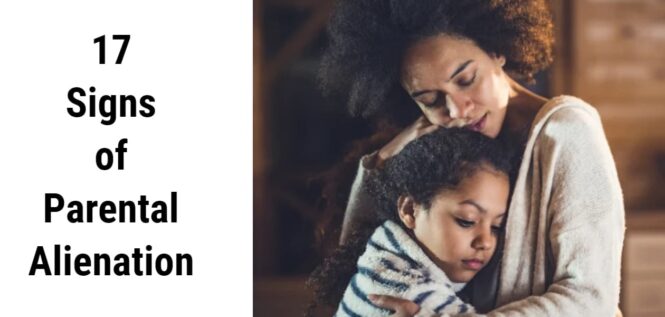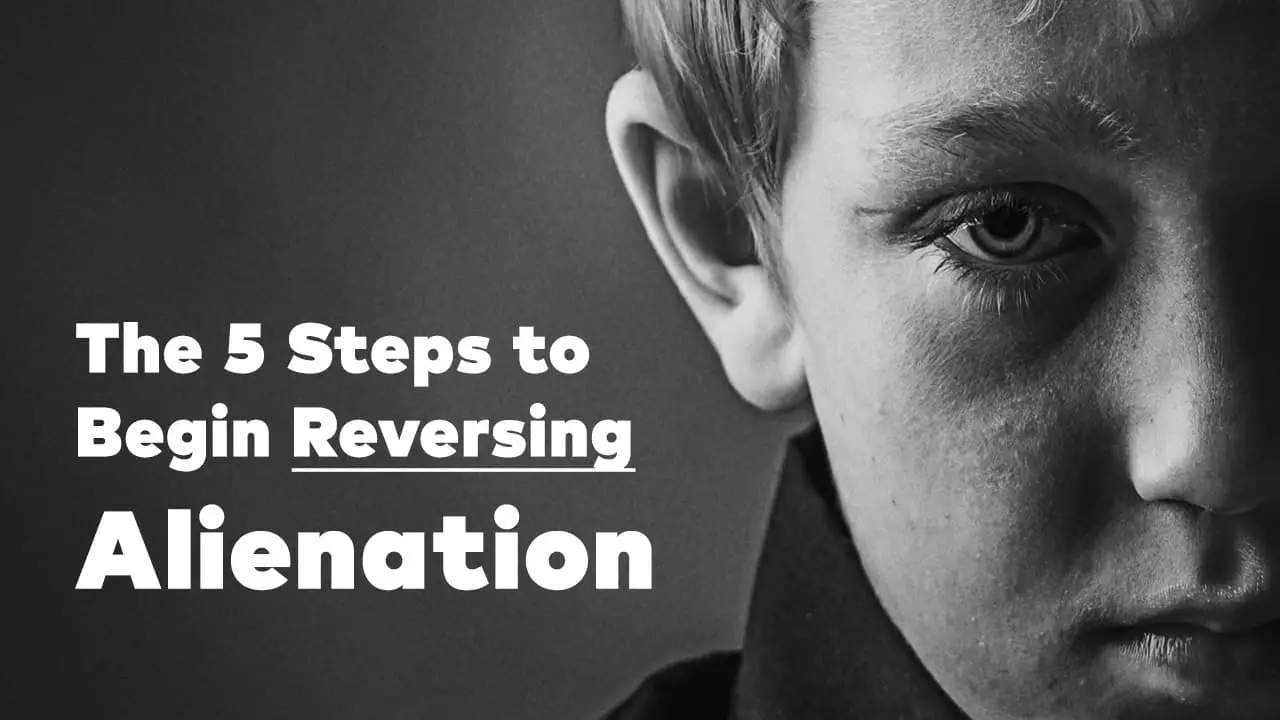
Parental alienation is a serious issue that affects children who are being raised by parents who have been separated or divorced. It’s a condition that occurs when one parent uses tactics to alienate the other parent from the child. These tactics include isolating the child from the other parent, encouraging the child to disrespect the other parent, and encouraging the child to make excuses for the other parent. Learn the 17 Signs of Parental Alienation and what to do if you suspect your child is being affected by it.
What are the 17 Signs of Parental Alienation
Parental alienation is a form of child abuse that can occur when a parent manipulates the child’s relationship with his or her other parent. The manipulation often occurs because the parent wants to keep the child away from the other parent. These are 17 Signs of Parental Alienation:
- The child is afraid to see or talk to the other parent
- The child is afraid of his or her own parents
- The child blames his or her parents for problems at school or with friends
- The child is afraid to have contact with the other parent
- The child has no interest in visiting the other parent
- The child is afraid of being taken away from the other parent
- The child believes the other parent is evil
- The child feels like he or she is not loved by the other parent
- The child is afraid to have anything to do with the other parent
- The child is afraid of being in the same room as the other parent
- The child is afraid to talk about the other parent
- The child is afraid to mention the other parent’s name
- The child has nightmares about the other parent
- The child does not want to go home
- The child is afraid to sleep at night
- The child has nightmares about the other parent
- Talking ill about your significant other
What are the first signs of Parental Alienation?
Since the first signs are difficult to spot, it is important to know the warning signs of parental alienation. However, there are some telltale signs that are often present. These include:

- The first signs of parental alienation include the child not wanting to visit the other parent, the child refusing to have contact with the other parent, the child being afraid of his or her own parents, and the child is afraid to talk about the other parent.
- The signs of parental alienation can be quite subtle. For example, the child might not want to talk about the other parent or he or she might be afraid to have contact with the other parent.
- If the child begins to act differently than he or she did when the parents were together. The child may begin to avoid the other parent, ignore the other parent, and act in a hostile way toward the other parent.
- If the child is afraid to see or talk to the other parent.
- If the child is afraid of his or her own parents.
These are the first signs of parental alienation. However, there are many other signs that are not obvious. For example, the child might not want to visit the other parent, he or she might refuse to have contact with the other parent, he or she might be afraid of his or her own parents, and he or she might be afraid to talk about the other parent.
What Are the Effects of Parental Alienation?
Parental alienation can have many effects. The most obvious effect is that the child becomes emotionally distant from the other parent. Definitely, the child feels like the other parent does not care for him or her. However, the child also feels like the other parent is evil and the other parent does not care about the child.
Another effect of parental alienation is that the child begins to feel that he or she is not loved by the other parent. The child may begin to blame the other parent for problems at school or with friends.
How Do You Know if Your Child Is Being Affected by Parental Alienation?
The signs of parental alienation can be difficult to spot. Therefore, it is important to know what signs to look for if you suspect that your child is being affected by parental alienation. This is the reason we explained the top 17 Signs of Parental Alienation.
What Happens If You Don’t Recognize the Signs?
If you don’t recognize the signs of parental alienation, then you might be losing your child. Hence, it is important to know the warning signs of parental alienation.
In some cases, the child may be afraid to talk about the other parent. He or she may feel like he or she cannot trust his or her own parents. The child may feel that his or her parents are not on his or her side. However, if you do recognize the 17 Signs of Parental Alienation, then you can begin to get help for your child.
What can you do if you suspect that your child is being affected by parental alienation?
There are a few things you can do if you suspect that your child is being affected by parental alienation. The first thing you need to do is to make sure that the signs are actual by reading our article on 17 Signs of Parental Alienation. Secondly, make sure that your child is not being isolated from you. Also, you should check that your child is not being physically abused.
And lastly, you should ask your child’s teachers, school counselors, and other professionals if they are aware of any problems at school.
Final words
In conclusion, I’d like to make some final remarks about parental alienation. This is a huge problem in the world of family law and it’s hard to talk about because it’s so insidious and sneaky. But before taking any actions make sure to confirm the 17 Signs of Parental Alienation and if you think your child is being abused, or that your child is being alienated from you, there are many things you can do. These 17 Signs of Parental Alienation are very similar to those seen in children who have been abused. The effects of this psychological abuse can be devastating and long-lasting.
